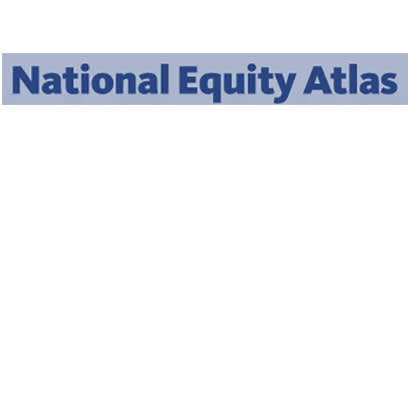
The National Equity Atlas provides data on demographic changes; access to economic, educational, social and health resources; and the economic benefits of equity within a community. Data is available for all 50 states, the District of Columbia and 430 large counties. This data can help drive policy making and investment in equitable and inclusive growth. The Racial Equity Index is a summary score of how successfully communities are addressing equity as compared to peer communities (i.e., city to city, state to state, region to region). By comparing scores on such indicators as median wage, poverty, disconnected youth, education level, air pollution, and rent burden, communities can identify priority areas for closing racial equity gaps.
Geographic coverage: Nation, State, Region, City/Place
